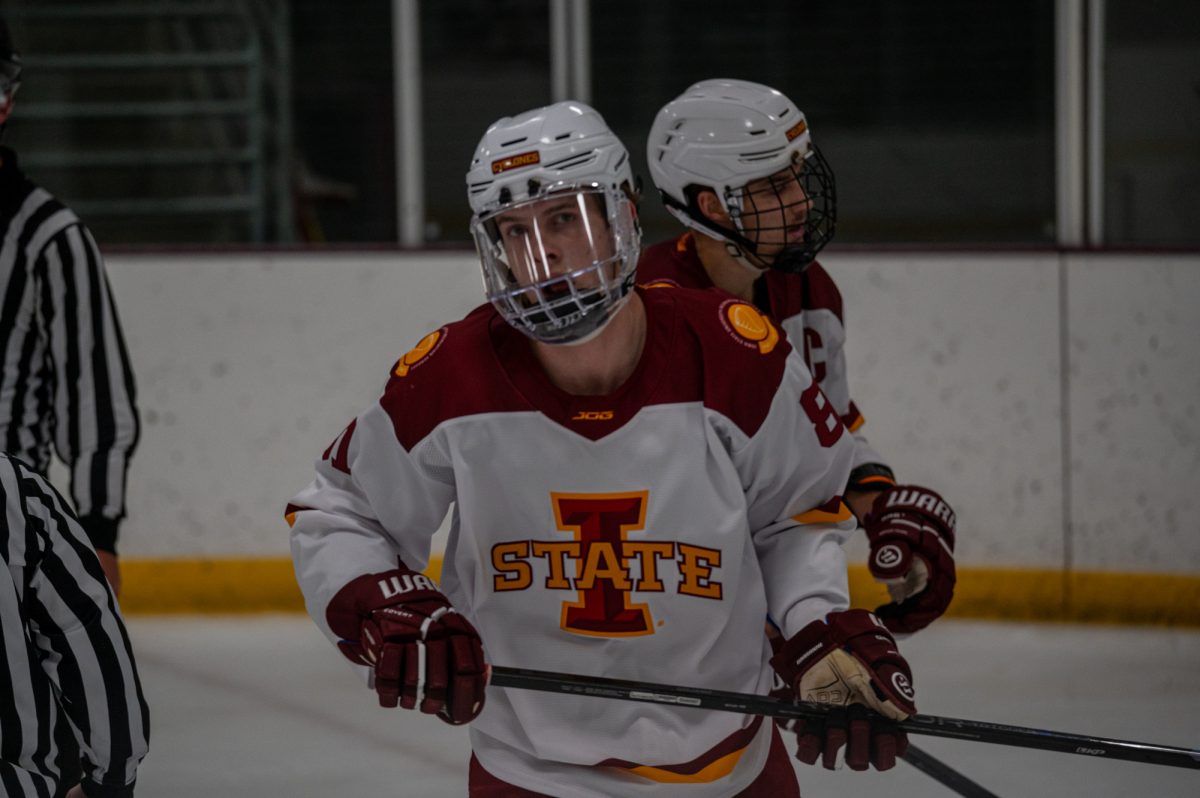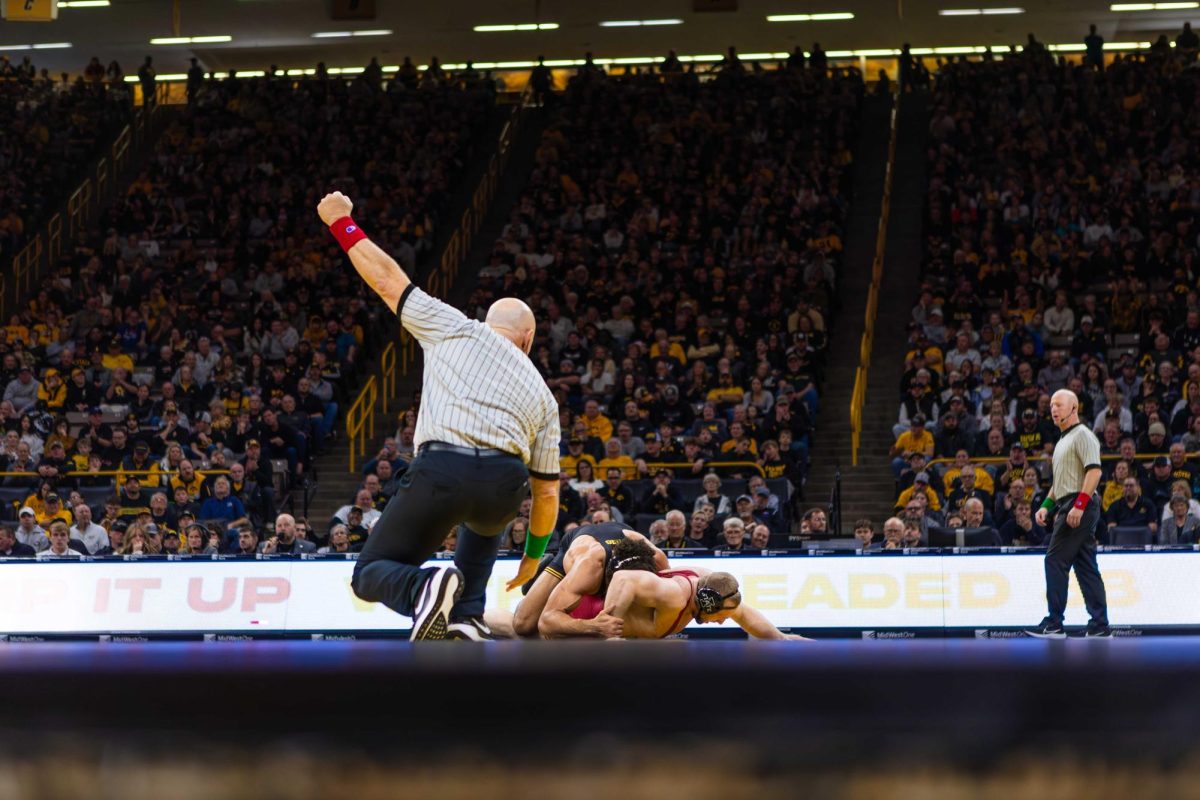BBC broadcasts from Ames for Midwest view
September 11, 2002
Ames was the focus of the world for a few short hours on Wednesday night.
The British Broadcasting Corporation used Iowa State’s communication building to get the viewpoint of Midwest America on the one-year anniversary of the terrorist attacks.
Ames joined New York and Washington on the list of three American locations in the BBC’s 24-hour coverage “9/11 One Year On: The Day That Changed the World.” Broadcasters were also stationed in London, Jerusalem, Kabul, Afghanistan, and Peshawar, Pakistan.
Host Rhod Sharp facilitated a discussion among local residents and a panel of four that in two hours covered everything from a reaction to President Bush’s address to the nation from New York to what Iowa fears the most.
Like Sharp’s British colleagues in New York, many in the audience were critical of the President’s remarks – particularly his statement to keep nuclear weapons out of the hands of “terrorists and tyrants.”
“I think [Bush] is backing himself into a corner,” said Kary Bledsoe, senior in political science. “People aren’t really wanting to follow us right now. I’m sure it’s a precursor of doom.”
Steffen Schmidt, university professor of political science, said Bush’s remarks may only be a threat to force Saddam Hussein into the open.
“We don’t have a smoking gun until a crime has been committed,” he said, “but if Saddam Hussein does have smallpox . we’ll pay a very high price if we wait for that crime to happen.”
Schmidt said he hopes Bush’s speech was nothing more than “sword-rattling or very big theater.”
Panelist Robert Ray, who was the Iowa governor from 1968 to 1981, said he supported Bush.
“The president was very, very good,” Ray said. “He completely understands that it was our country that was attacked.
“I don’t agree that the President of the United States can sit back and ignore what happened,” he continued. “He has the will, the understanding and the support of the country.”
Leia Guccione, senior in mechanical engineering, said she thinks Bush was trying to fulfill several leadership roles when he addressed the nation – from commander-in-chief of the armed forces to consoling parent.
“We have to think what we expect of him as a leader,” she said. “He was trying to appeal to the entire nation, and I think he did that.”
The town hall meeting also addressed what Iowans dread the most.
“I promise this is as introspective as it gets,” Sharp said. “I know it’s difficult, but I want to reach and see how far it gets.”
For farmer Gordon Wallace, it was food safety.
Schmidt and Guccione said the biggest fears had nothing to do with the terrorist attacks, however, but everyday life.
“My students are worried about grades,” Schmidt said. “They’re worried about the economy going into the tank and whether or not they’ll have a job when they graduate . They’ll worry soon about tornadoes, which are a much bigger threat to Iowans than car bombs and airplanes.”
Guccione said the significance of Sept. 11, 2001, comes from “the numbers we attach to it.”
“The real problems come back to us,” she said. “On Sept. 12, 2001, people began to talk about the economy.”
For Ames resident Lori Peake, the worry is that the problems will not come from far-away countries. She said students and faculty were prohibited from returning to the United States not by foreign terrorists, but by the American government.
“I think the greatest enemy may not be without,” she said.
“It may be within. And it may be the erosion of our civilization.”
The broadcast, which was on the British airwaves between 2 and 4 a.m., also covered the feelings about America one year after the attacks.
Ames resident Teresa Albertson, of Ames, said the attacks not only brought t he country together, but emphasized the nation’s diversity.
“I’ve talked to a lot of people, and I’m really hearing a common theme,” Albertson said. “I think the pitiful and pathetic little men who did this could try to kill everyone in my family, everyone in this room, everyone in this country, but the ideals this country was built on will continue.
“Our ideals are the ideals of every country, because this country is the melting pot of every other country in the world.”
Albertson said Bush should send that message to the terrorists.
“I’d not be surprised if those pathetic little men are listening tonight,” she said. “If they are, that’s what I’d say to them.”






